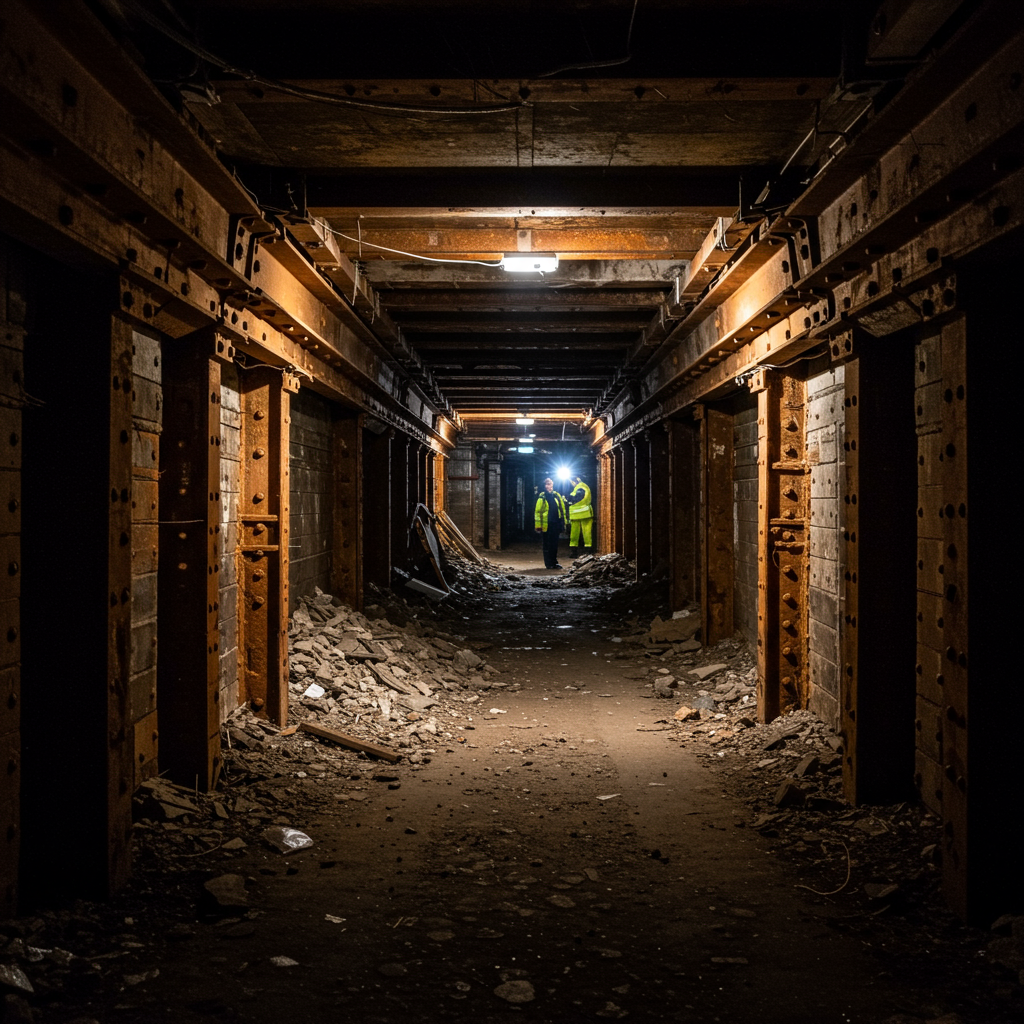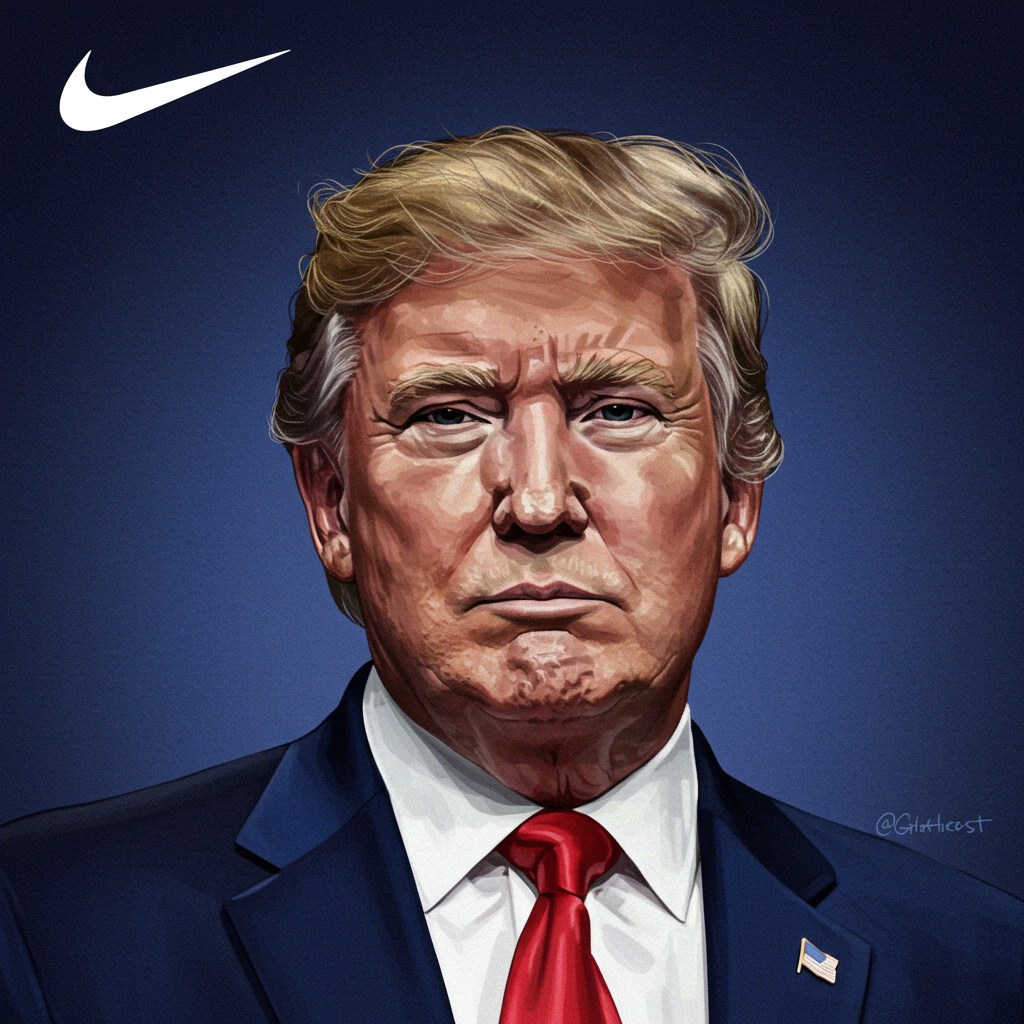Beneath a typical UK high street, shrouded in absolute darkness, a clandestine world thrives. We navigate a precarious underground passage, beams groaning under the weight of the shop floor above. Rusty car jacks brace disintegrating supports. It feels like stepping into a forgotten, unstable realm hidden in plain sight.
Following the guiding beam of a Trading Standards officer’s torch through piles of debris, we finally see it: a concealed cache. Thousands of illegal cigarettes are meticulously hidden, waiting to be funnelled back onto the streets above. This dramatic scene in Hull is just one snapshot of a disturbing reality. During one week, our team repeatedly witnessed counterfeit and smuggled tobacco openly sold in mainstream mini-marts. Attempts to document this often met threats and physical obstruction, shop workers grabbing cameras.
This isn’t an isolated issue confined to one northern city. It is a narrative echoing nationwide. In April, the National Crime Agency (NCA) conducted widespread raids on hundreds of high street businesses suspected of receiving supplies from international criminal networks. Trading Standards teams consistently uncover a flourishing black market in illicit tobacco products. Experts warn this illegal trade serves as a critical link, a “golden thread,” connecting various facets of serious organised crime in the UK. It is deeply intertwined with people trafficking, drug distribution, illegal immigration, and even firearms smuggling.
Therefore, the unassuming shop fronts we see daily are, in many cases, direct conduits for the most significant domestic problems facing Britain today. Political scientists argue this illicit activity erodes public faith in law enforcement and government institutions. It transforms our familiar high streets into stark symbols of national decline and vulnerability.
Alan, a former police detective now working as a Trading Standards officer in Hull, dedicates his efforts to rooting out these hidden sales. He searches for illicit cigarettes stashed under counters in mini-marts, barber shops, and takeaways. He notes the alarming speed at which these operations have proliferated across the city.
Under the floorboards of one mini-mart, named Ezee Shop, a network of makeshift tunnels houses contraband. As battered suitcases and black bin bags overflowing with cigarettes are hoisted through a hidden trap door, a man assisting in the shop watches, seemingly amused. “It’s not dangerous,” he shrugs, “it’s just cigarettes. Everyone sells them.” He casually mentions some shops even peddle hard drugs like crack cocaine.
Alan estimates this single haul is worth roughly £20,000 on the black market. This is a tiny fraction of the estimated £2.2 billion lost annually to the UK Treasury due to the illegal tobacco trade, according to HMRC. He admits that this single raid won’t fundamentally alter the situation in Hull. He has visited some shops over twenty times and believes around 80 locations in the city are actively selling illegal tobacco. “We’re losing the war,” he states grimly.
Alan’s concern for his safety is palpable; he prefers not to be fully identified due to the dangerous organised crime groups frequently supplying these businesses. Soon after the raid, a man claiming ownership of Ezee Shop arrives. Identified as a Kurd from Iran, he expresses furious anger at being filmed while his illicit goods are seized.
Illegal cigarettes sold across the UK originate from various sources. Some are manufactured domestically, while others are cheaply produced in countries like Poland or Belgium. Many are designed to mimic popular established brands. Crucially, these products bypass necessary taxes and duties. Worse, numerous illegal cigarettes fail to meet basic safety standards. Past warnings from the Local Government Association highlighted alarming findings, including reports of black market cigarettes containing contaminants like human excrement, dead flies, and asbestos.
To understand the scale and openness of the trade, our team went undercover in Hull. We visited twelve different shops, some multiple times, attempting to purchase cheap cigarettes and covertly filming the interactions. The windows of many such businesses are deliberately obscured by large posters advertising sugary drinks, confectionery, and vapes, making it difficult to see what is happening inside.
Nine of the twelve shops readily sold us illegal cigarettes or hand-rolling tobacco. Two others directed us to places where we could buy them cheaply. We were openly offered a range of brands with packets priced between £3 and £7. This contrasts sharply with the average legal price in the UK, which is around £16. None of the businesses we bought illegal items from in Hull responded to requests for comment on their activities. However, this issue is clearly not confined to one city.
Data from investigators working for an international tobacco firm, shared with the BBC, identified over 600 shops selling illegal packets last year alone. Several cities were flagged as hotspots, including Bradford, Coventry, and Nottingham. In Bradford, investigators reportedly found 49 stores selling counterfeit goods in just two days, having to halt purchases only because they ran out of bags to hold the test items. While these specific figures require independent verification, they underscore the pervasive nature of the problem across the country.
This expanding illegal trade is not a random phenomenon; it stems from specific, identifiable causes. Primary among these is profit. The UK imposes some of the highest excise taxes on legal tobacco globally, creating a massive price difference. Selling illegal packets for £3-£5 becomes incredibly attractive to customers, especially during a cost of living crisis, and generates huge profits for criminals.
Financial penalties often fail as a deterrent. In one case involving Ezee Shop, the owner, previously convicted for selling illegal cigarettes, received a fine of just £80, plus costs. Although tougher rules introduced in 2023 allow for fines up to £10,000, this amount can still be significantly less than the value of a single large stash of contraband.
This lack of effective deterrence is evident. After the raid on Ezee Shop, we returned covertly. Within mere hours, the shop had reopened, restocked, and was once again selling illegal cigarettes. Criminologists studying the issue confirm that UK authorities are struggling significantly to manage the problem.
Professor Georgios Antonopoulos, a criminologist at Northumbria University Newcastle, points to funding as a major barrier. He describes enforcement teams as “chronically underfunded.” Police forces, he notes, understandably prioritize more visible violent crimes and drug trafficking, leaving less capacity for tackling illicit tobacco unless it’s linked to those higher priorities.
Some Trading Standards officers express frustration with the limitations of their current powers. Alan highlights public confusion, asking “The general public don’t understand why they can’t be closed down?” While anti-social behaviour legislation can potentially close shops for up to three months, it often requires complex processes and statements from other businesses and the public, which can be difficult to obtain. Experience shows that when shops are temporarily closed, the criminal operators frequently reopen nearby under a different name or premise. Alan advocates for a clear ‘three strikes and you’re out’ policy to enable permanent closure of persistently offending businesses.
Despite a previous government pledge of £100 million over five years to bolster HMRC and Border Force efforts against the illicit trade, the Chartered Trading Standards Institute has warned that broader forms of organised crime, including major scams and rogue trading, might effectively face decriminalisation due to persistent underfunding across enforcement agencies.
Tracking the suppliers is an immense challenge. HMRC acknowledges the sheer number of organised crime groups operating across international borders makes limiting the influx of goods extraordinarily difficult. Recent international efforts included Hungarian authorities raiding a factory found packed with fake cigarettes in May. Legitimate tobacco companies also point to production sites in Ukraine, though authorities there are understandably stretched by the ongoing war.
Crucially, a “significant production” of illicit tobacco also occurs within the UK itself, notes Professor Antonopoulos. A Trading Standards team in South Wales described encountering cheap counterfeit hand-rolling tobacco, claiming some was produced using forced labour potentially controlled by Chinese organised crime gangs. Dave McKelvey, who runs TM Eye private investigators, working with tobacco firms, alleges that Fujian-based Chinese triads operate a “vast business” within the UK connected to these activities.
Identifying the actual individuals controlling these criminal enterprises is notoriously difficult. Trading Standards officers explain that the individuals listed as company directors on official documents often have no genuine involvement in the business operations. They may simply be paid a small monthly sum to act as a nominal figurehead. Planned new powers for Companies House later this year aim to improve the identification of true business owners, which could offer some assistance.
Authorities are indeed trying to tackle the issue and clean up British high streets. Earlier this year, our team joined dozens of raids led by the NCA during a month-long operation targeting barber shops and mini-marts linked to organised crime. However, former senior detectives involved in the undercover work stressed the need for more time and resources to fully dismantle the complex networks supplying these retail fronts.
Throughout investigations, including time spent with Trading Standards in Hull and joining raids in areas like Shrewsbury and Greater Manchester, officers have consistently observed that operations linked to illegal tobacco are often staffed by individuals identified as Kurds from Iran and Iraq. Questions arise about their right to work in the UK. In Hull, Alan suspects some individuals working in these shops may be recruited from asylum seeker hotels. He suggests they are seen as “expendable” by the criminal gangs, easily replaced if caught. Trading Standards teams in other areas, such as Rochdale, have reported similar observations.
Criminology professor Emmeline Taylor strongly argues that the criminal supply chains fueling the illegal tobacco trade are inextricably linked to other severe criminal activities. She warns the damage cannot be understated. “They’re not just dealing in tobacco,” she emphasizes. “It’s firearms, it’s drugs, it’s people trafficking, it’s illegal immigration.”
The Home Secretary, Yvette Cooper, publicly condemned the situation, calling it a “total disgrace” that “criminal gangs are trying to abuse our high streets by using shops as a front for organised crime.” She explicitly accused these gangs of “undermining our border and immigration systems by employing illegal workers.”
While pockets of criminality on the UK high street are not new, experts now agree that the current scale of this illicit trade significantly harms public trust in authority. It fundamentally undermines people’s sense of fairness. Professor Taylor highlights the impact on legitimate businesses: “If you’re a law abiding business following the rules, you’re jeopardising your own livelihood… And to me that’s not fair that someone can succeed by not playing by the rules.”
Josh Nicholson, a researcher at the Centre for Social Justice, suggests that public perceptions of crime have worsened. Their research indicates a prevalent “feeling of powerlessness” and “a lack of respect for authority like the police.” He notes, “When they don’t see it tackled, people’s perception is that things are getting a lot worse.”
Professor Will Jennings, a political science professor at the University of Southampton, has conducted studies suggesting people’s trust in government tends to decline when they perceive a deterioration in the quality and availability of shops in their local area. Nick Plumb, a director at the Power to Change charity, links declining high streets to shifts in political support. His research indicates parties once considered outside the mainstream, such as Reform UK, see increased support in areas with struggling high streets compared to elsewhere in England. He attributes this partly to a perception that mainstream politics and local authorities have failed to address these visible signs of decline, leading residents to seek new political alternatives.
Ultimately, the visible environment of the places people call home profoundly impacts their well-being and perspectives. “People find a sense of local identity in the quality of the streets where they’ve grown up,” adds Mr Nicholson. When that quality significantly deteriorates, making people feel they cannot even comfortably visit their local centre, “what that does to a sense of community is unquantifiable.” The illegal cigarette trade, thriving openly on these streets, is a stark, damaging manifestation of these complex underlying problems.
Frequently Asked Questions
What is the connection between illegal cigarette sales and organised crime in the UK?
Experts describe the illegal tobacco trade as a “golden thread” linking to wider organised crime networks. Profits from illicit cigarettes are often used to fund other criminal activities, including people trafficking, illegal immigration, drug distribution, and firearms smuggling. Shops selling illegal tobacco may also be fronts for these other criminal enterprises, making the trade a crucial component of major criminal operations.
How widespread is the illegal cigarette trade across the UK?
The illegal cigarette trade is a significant national problem, not limited to specific regions. Investigations by authorities like Trading Standards and the NCA have uncovered thousands of shops selling illicit tobacco across the country. Hotspots identified include cities like Hull, Bradford, Coventry, and Nottingham. The issue involves complex international supply chains alongside domestic production, making it a challenge for enforcement agencies nationwide.
Why are UK authorities struggling to stop illegal cigarette sales?
UK authorities face multiple challenges in tackling this issue. Enforcement teams, including Trading Standards, are often described as “chronically underfunded” and understaffed, limiting their capacity for investigations and raids. Existing legal powers to close shops can be complex and temporary, with convicted businesses frequently reopening quickly. Financial penalties for selling illegal tobacco are often lower than the potential profits, failing to act as a sufficient deterrent for criminal networks driven by high returns from avoiding UK excise taxes.




